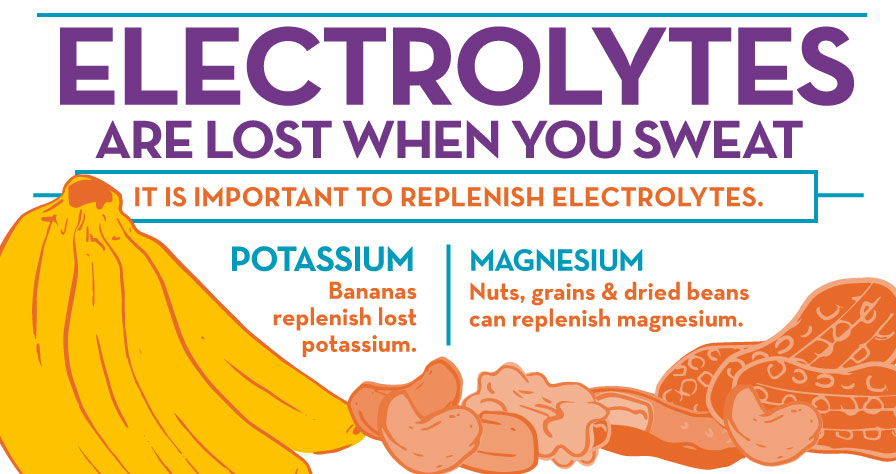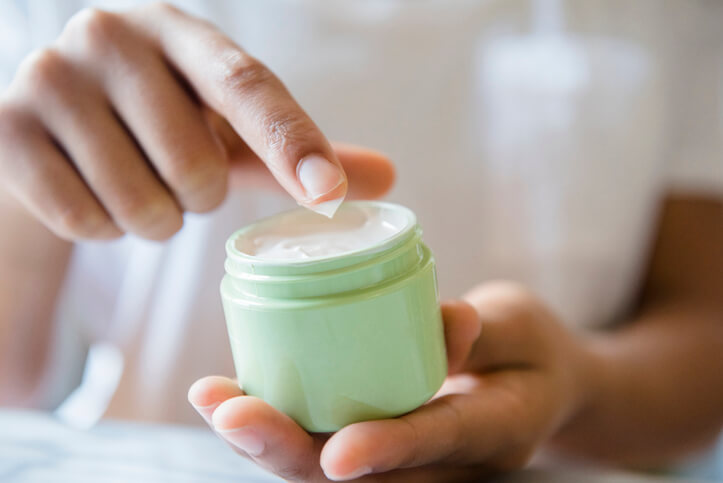4 Important Electrolytes

What is an Electrolyte?
Electrolytes are minerals in your body that have an electric charge. They are in your blood, urine, tissues, and other body fluids and are essential because they help balance the amount of water in your body.
What Do Electrolytes Do?
Electrolytes are involved in many essential processes in your body and play a role in conducting nervous impulses, contracting muscles, keeping you hydrated, in addition to regulating your body’s pH levels.
Why is Electrolyte Balance Important?
It’s commonly known that perspiration, resulting from high-intensity workouts, depletes our bodies of electrolytes – minerals crucial to the effective functioning of our cardiac, digestive, muscular and nervous. Balanced electrolyte levels help prevent post-workout fatigue and cramping, leading to a sub-optimal performance on succeeding workouts.
What Happens When Your Body is Low on Electrolytes?
If your body is low on electrolytes, you may experience what’s known as electrolyte imbalance. Symptoms of electrolyte imbalance include:
- Dizziness
- Nausea
- Constipation
- Dry mouth
- Dry skin
- Achy joints
While working out, you lose the 4 most important electrolytes, each of which contributes to an essential function to the body.
What are the 4 Types of Electrolytes Lost in Sweat During Exercise?
Among minerals lost during high-intensity workouts are the four most important electrolytes to the body’s fluid balance: potassium, sodium, calcium, and magnesium.
Balancing 4 Important Electrolytes
Potassium
Potassium is important because it regulates the flow of fluids and nutrients into and out of body cells and is essential to all metabolic activities. Without potassium, you won’t have control over muscle contractions due to lacking nerve impulses. Consider eating a banana to replenish lost potassium.
Sodium
Don’t assume you can just increase your sodium intake and you will be good to go. It is important to consume sodium with a combination of electrolytes. If you only replenish sodium, you’ll encounter swelling of your feet, hands, and ankles. Your body also needs a combination of electrolytes to keep your hormones balanced and avoid disruption of your body’s regulation process. To replace sodium, consider eating peanut butter on a bagel as a post-workout snack.
Calcium
Calcium promotes bone strength. Bone health is important while exercising due to possible stress fractures and other injuries that may occur. All while reducing the risk of osteoporosis. Professors at McMaster University have found that milk delivers more electrolytes than sports drinks. This is due to the carbs, calcium, sodium, potassium, and protein found in milk. If milk isn’t something you want to drink after a hard workout, try incorporating yogurt into your daily diet.
Magnesium
Magnesium aids in muscle contraction, nerve function, enzyme activation, and bone development. It also fights fatigue. When you have a magnesium deficiency, your body will tire more quickly during workouts. Replenished your magnesium levels with nuts, grains, and dried beans.

Learn More About Electrolyte Balance
After any intense exercise, it is important to replenish these electrolytes. You can opt for electrolyte drinks such as Powerade® and Gatorade, but keep in mind these sports drinks contain high amounts of sugar. There isn’t a set window of when to refill on these electrolytes; however, the sooner the better.
Contact the Baptist Health orthopedic team if you have any questions about replenishing electrolytes from exercise.



